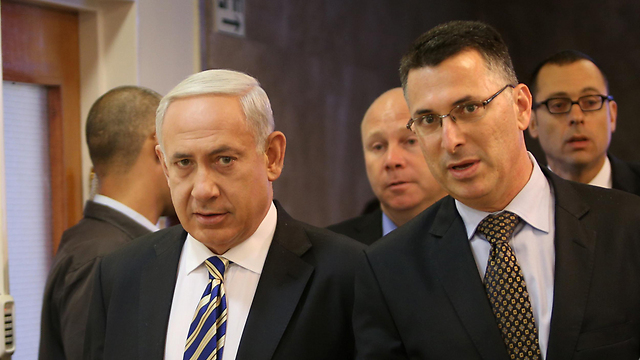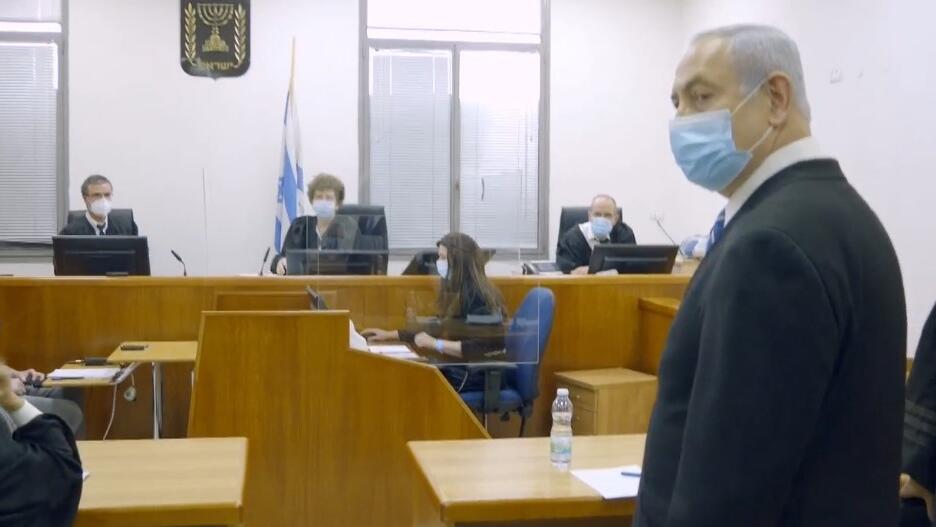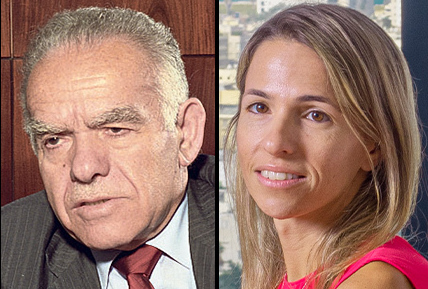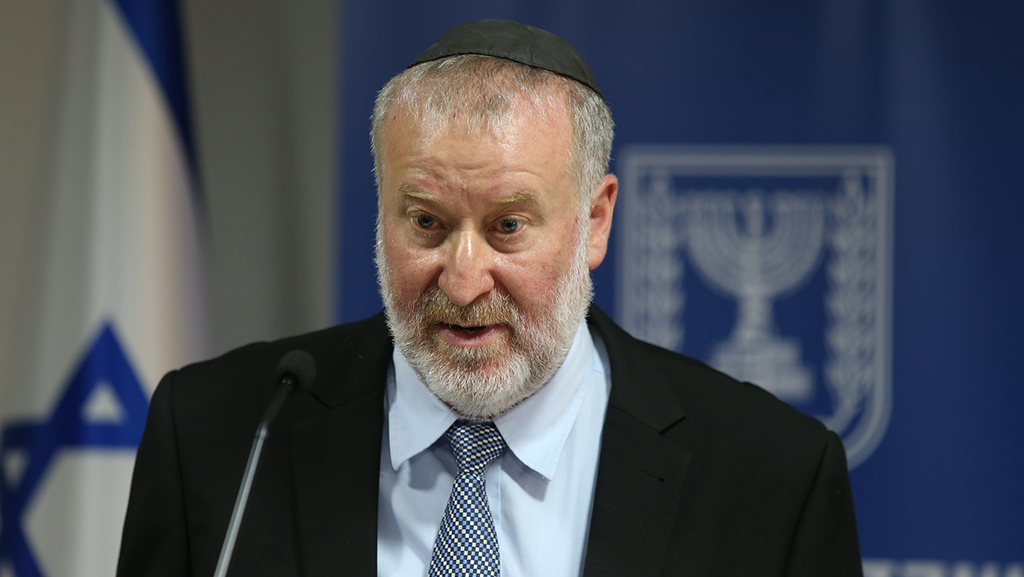With less than 80 days left until Israelis head to the polls for the fourth time in two years, Prime Minister Benjamin Netanyahu’s strongest challenger has introduced a noticeable addition to his political roster and promised a string of major reforms if elected.
Gideon Sa'ar, the former longtime Likud lawmaker who last month made a splash by forming his own party, over the weekend pulled off a significant coup, adding former Likud prime minister Yitzhak Shamir’s granddaughter to his ranks.
4 View gallery


Prime Minister Benjamin Netanyahu and former ally Gideon Sa'ar
(Photo: Alex Kolomoisky)
Shamir, who was a prominent figure in Israel’s establishment and preceded Netanyahu’s first term as prime minister, serving from 1983 to 1984 and from 1986 to 1992, is considered one of the founding fathers of the right-wing party.
On Saturday, Shamir’s granddaughter, Michal Diamant, announced that she was renouncing her membership in the Likud party and would run for office as part of Sa'ar’s New Hope party.
“The Likud is no longer the party I knew and grew up in,” Diamant said. “One of the most important things my grandfather strived for was unity within our people. Today’s leadership is trying to instill the exact opposite.”
“He wouldn’t be happy with the current situation, I’m sure,” Diamant said. “Israel’s prime minister should be motivated by principles and ideals, not just political calculations.”
Transportation Minister Miri Regev, a Likud party lawmaker, lashed out at Diamant over her defection, telling her: “If your grandfather had seen you today, he would have turned in his grave.”
Sa'ar said that Diamant, an attorney, would spearhead the party’s judicial reform initiatives and would be in charge of putting together New Hope’s policy platform on the subject.
Two major issues the former interior and education minister promises to fundamentally change are the nomination process for Supreme Court justices, and the authority and scope of Israel’s attorney general.
Over the years, the subject of the justice system’s independence and reach has come under major scrutiny, with right-wing parties demanding the power of the Supreme Court and attorney general be limited, accusing them of hyper-activism and harboring a liberal agenda.
4 View gallery


Prime Minister Benjamin Netanyahu appearing in Jerusalem District Court in May as part of his corruption trial
(Photo: Contact)
Netanyahu, long a staunch defender of the courts’ independence, has in recent years – and more so after his indictment for charges of bribery, fraud and breach of trust – spearheaded the growing criticism.
“During his 15-year reign, Netanyahu neglected the judicial system, and failed to enact even one reform,” said a New Hope spokesperson.
“Sa'ar, meanwhile, passed important laws on the matter. Our system needs fixing, not destroying. There is a lot to do, and we will actually get it done.”
Prof. Gad Barzilai, a former dean of Haifa University’s Faculty of Law, believes some of the latest proposals should be adopted, while others will only do more harm than good.
“Separating the attorney general role into two distinct, independent positions – attorney general and chief prosecutor – will only strengthen our judicial system,” he says.
“Close to two-thirds of all democratic judicial regimes have adopted this in some form.”
The office of the attorney general currently is charged with advising the government’s ministers on the legality of proposed bills and other policy issues, and with representing the government in court.
At the same time, the attorney general is responsible for prosecuting government members, including the prime minister, for suspected crimes.
Barzilai insists the constitutional reform proposed by Sa'ar, and several politicians and legal experts before him, can be achieved without harming the system.
“This needs to be done carefully, deliberately, by an independent committee. It can remove the inherent strain and contradiction within the system,” he says.
“It won’t undermine the attorney general like some fear, because he’ll retain the powers to represent and advise, and also will be able to refer criminal cases and investigations to the prosecutor, which will be a separate, independent arm.”
As for the more controversial proposal sure to be present in New Hope’s agenda, legal analysts are much more hesitant.
Sa'ar, Diamant and other right-wingers promise to enact open-door hearings for all Supreme Court justice nominees, mirroring the well-known American method. Opponents say this will turn Israel’s justice selection process into a spectacle and would unnecessarily introduce politics into the mix.
Israel’s current system for choosing judges consists of a nine-member committee made up of lawyers, lawmakers, government ministers and Supreme Court justices, who eventually vote and approve candidates for all three levels of the nation’s courts.
While Barzilai insists that no suggestion should be rejected out of hand before serious consideration, “subjecting nominees to parliament hearings would turn the whole process into a dangerous, chaotic political party affair.”
“Israel’s nomination process is one of the best in the world. Our system is extremely professional and independent,” he says.
“With no set constitution like the U.S. has, this change would damage it irreparably.”
Article written by Uri Cohen. Reprinted with permission from The Media Line



